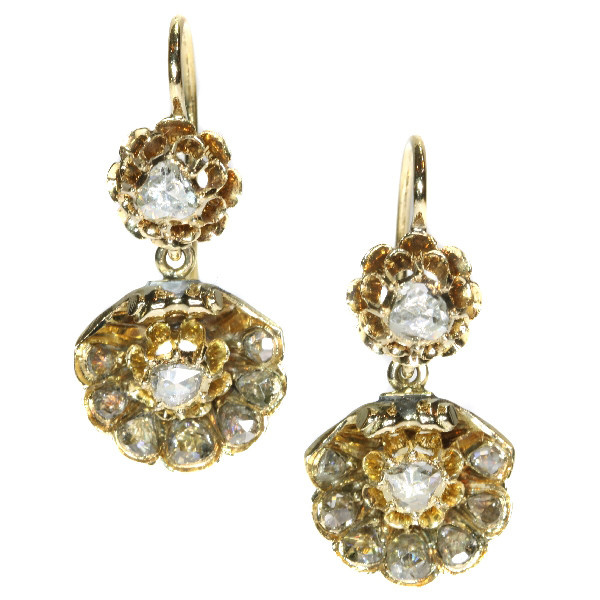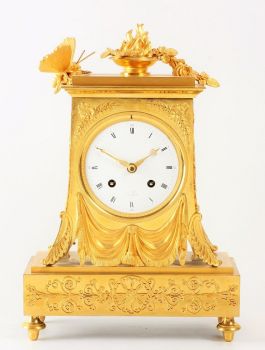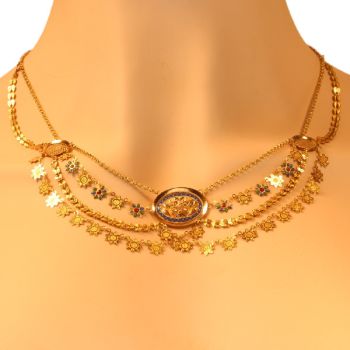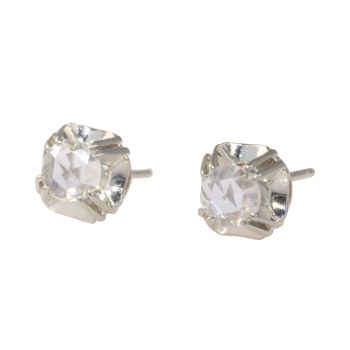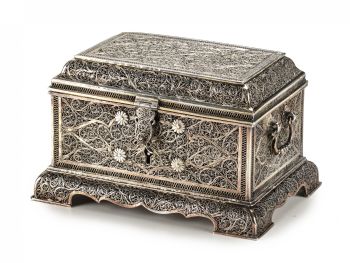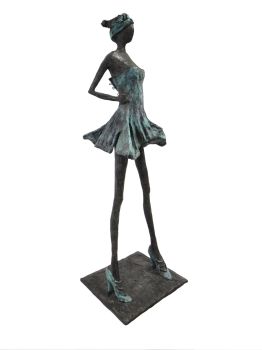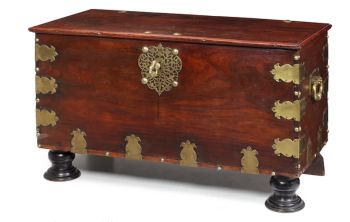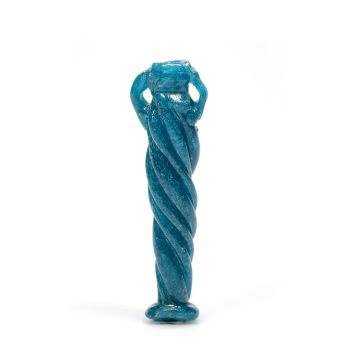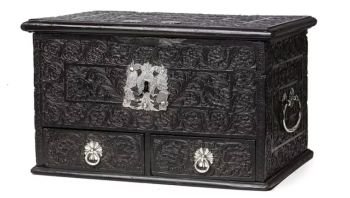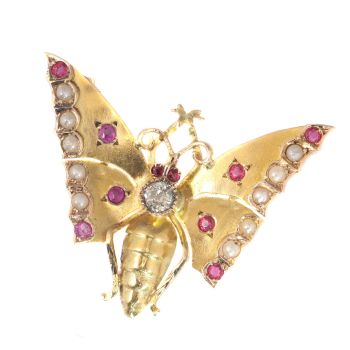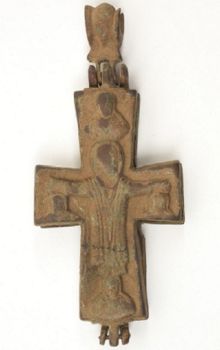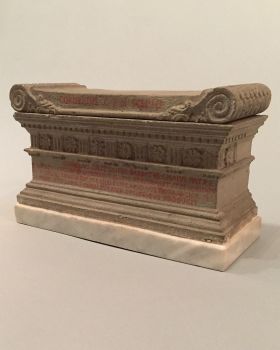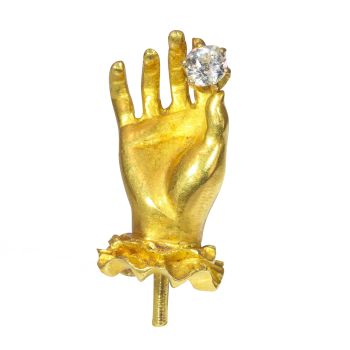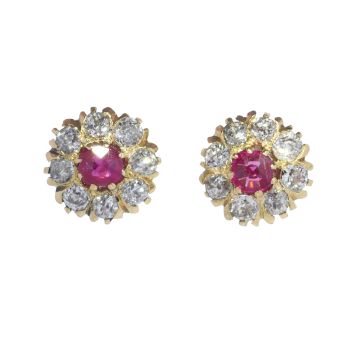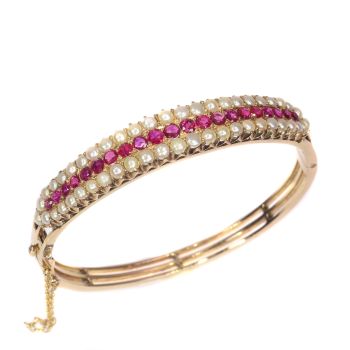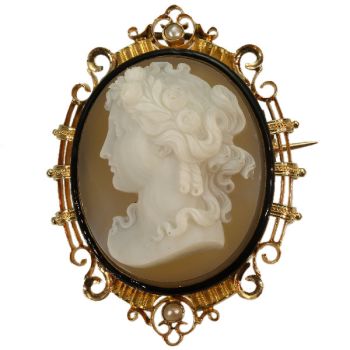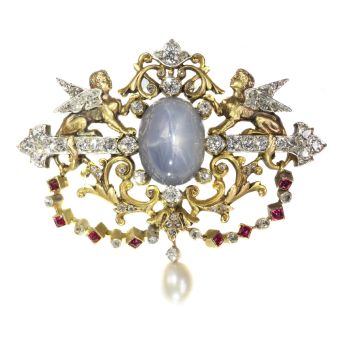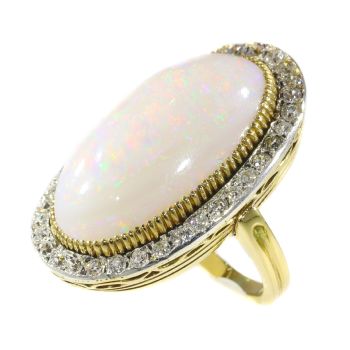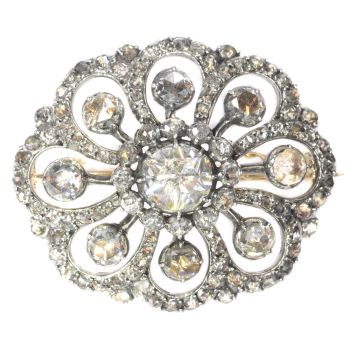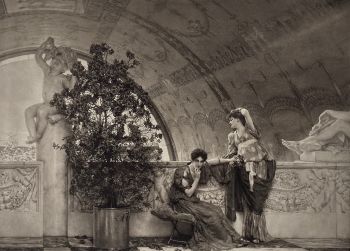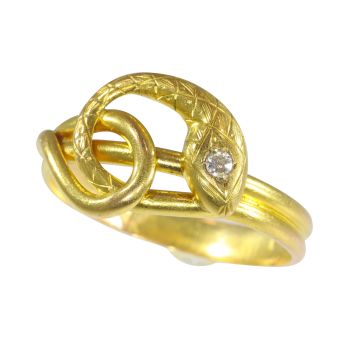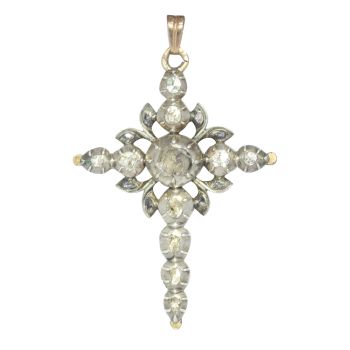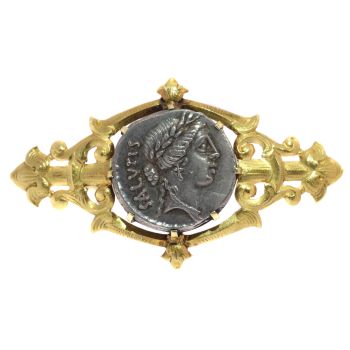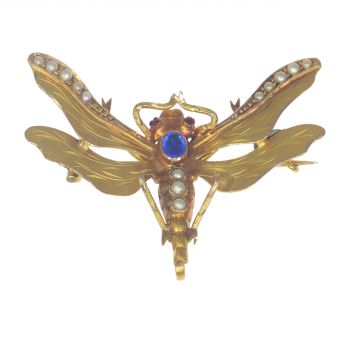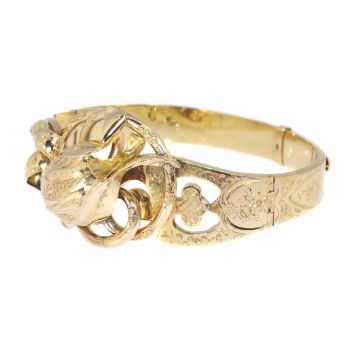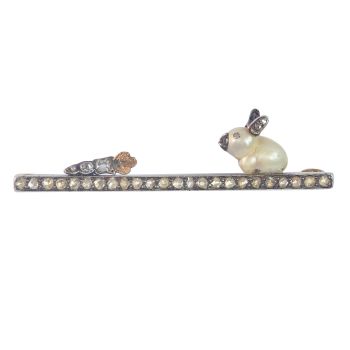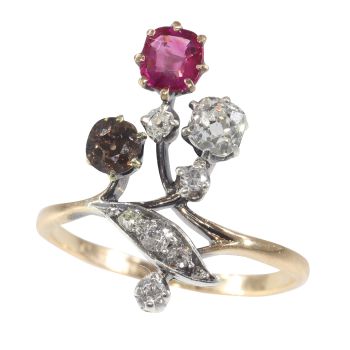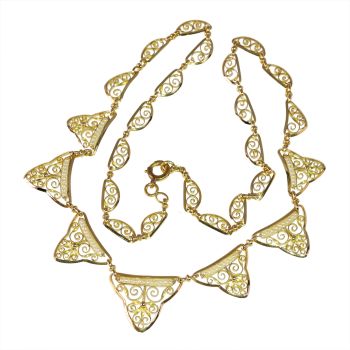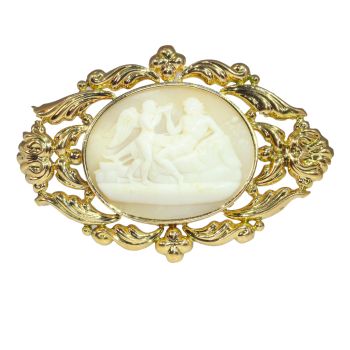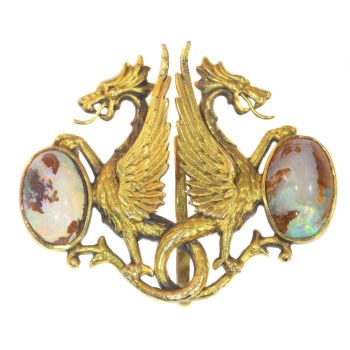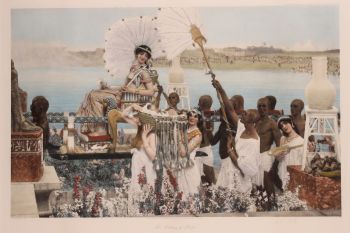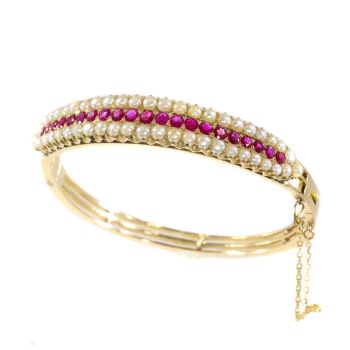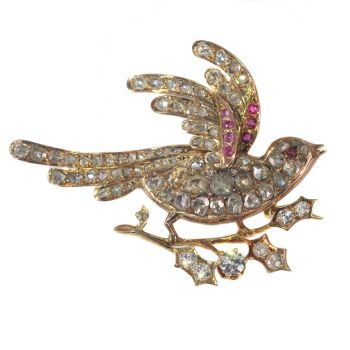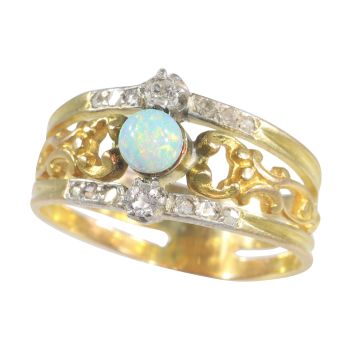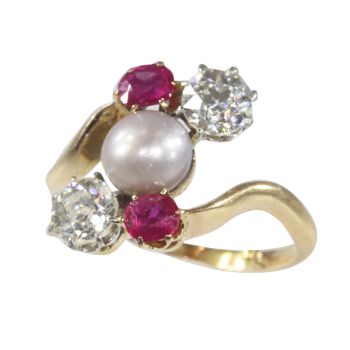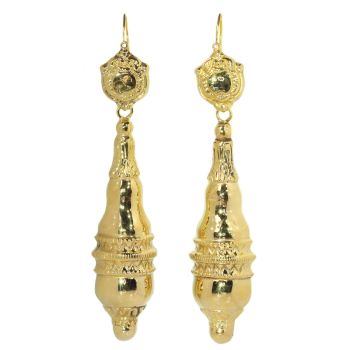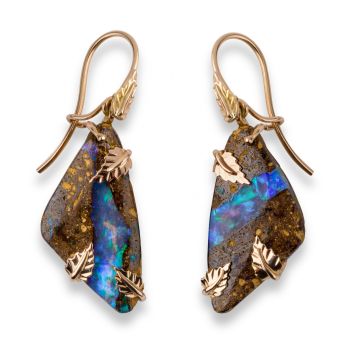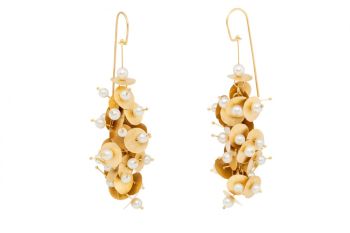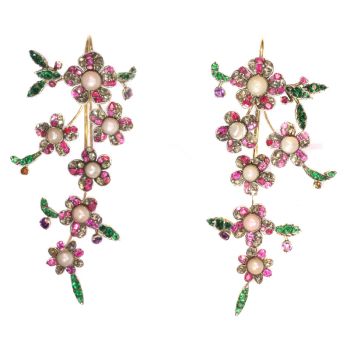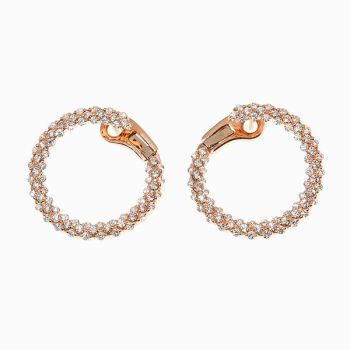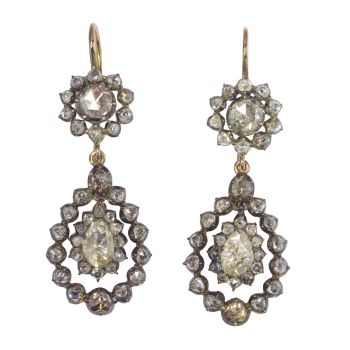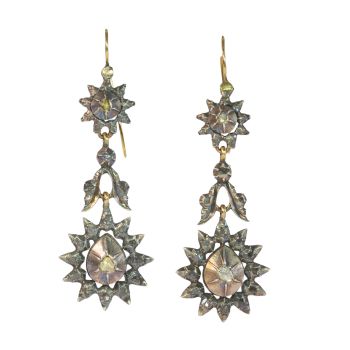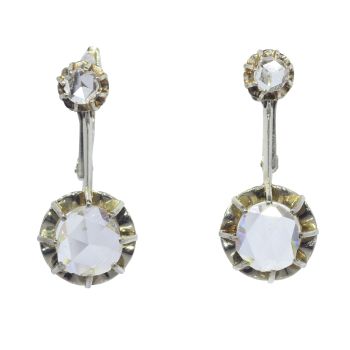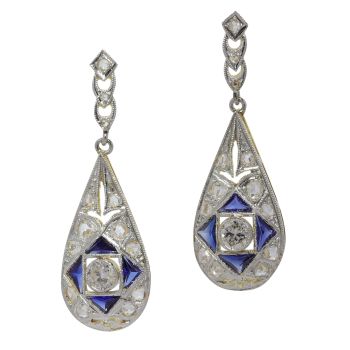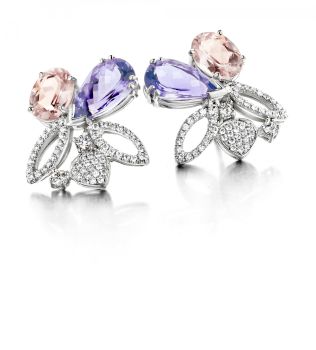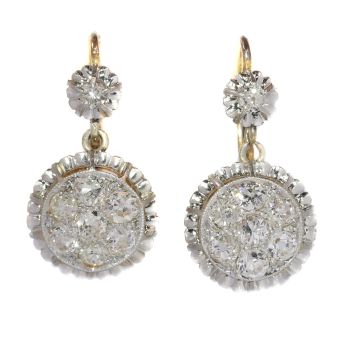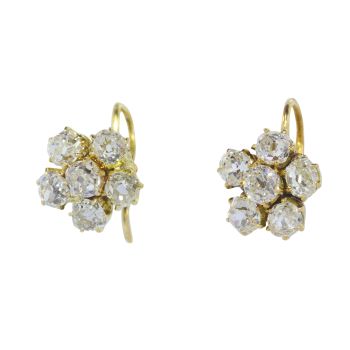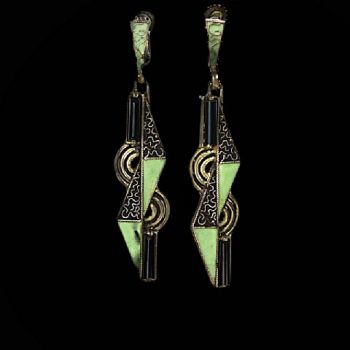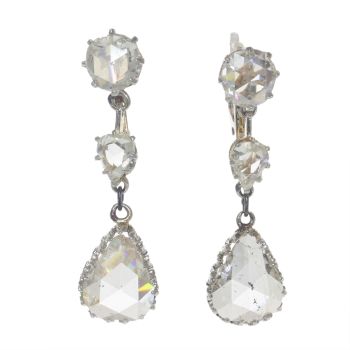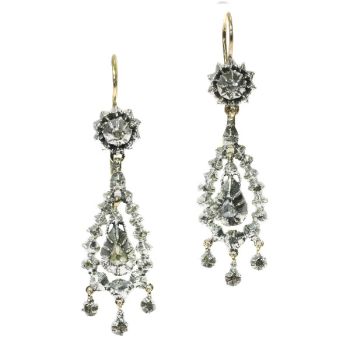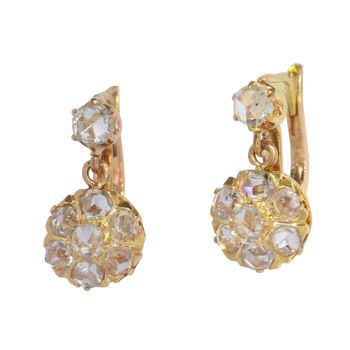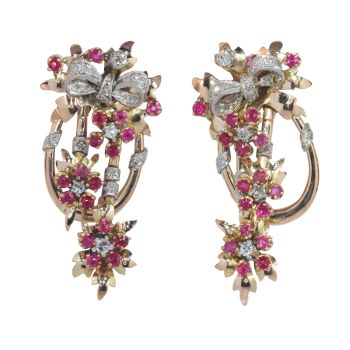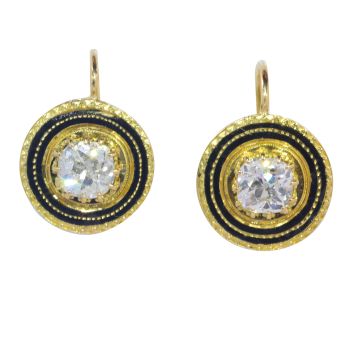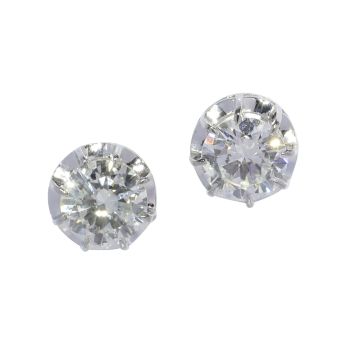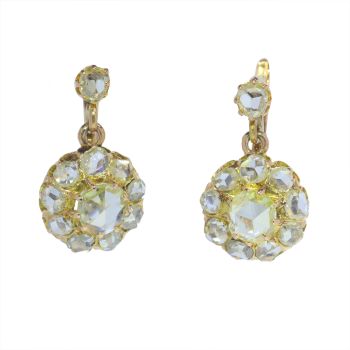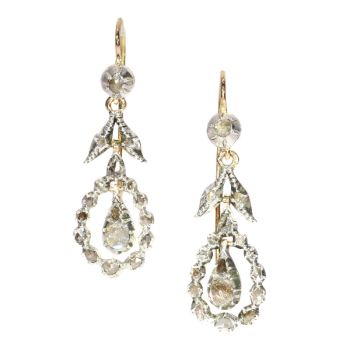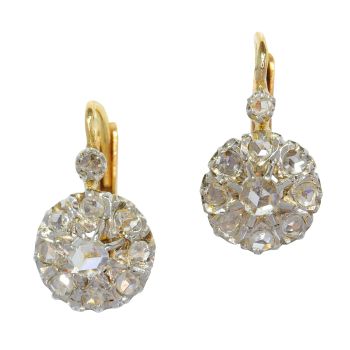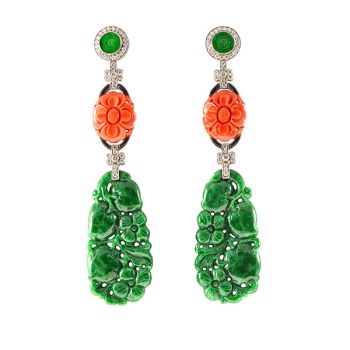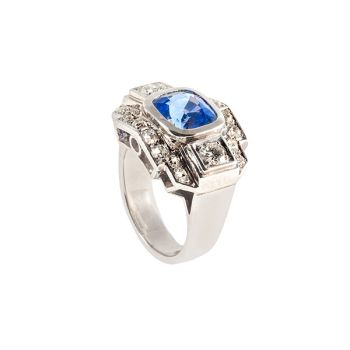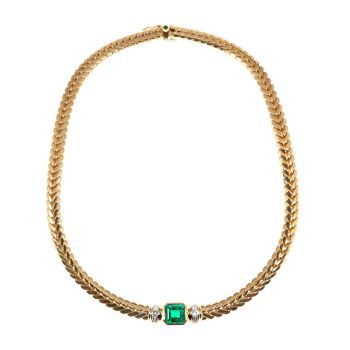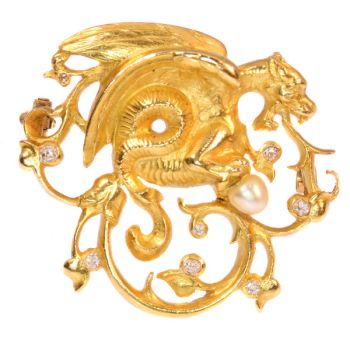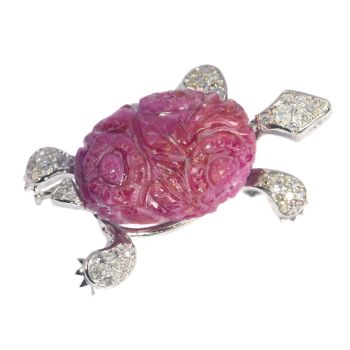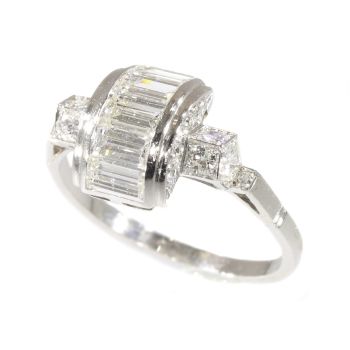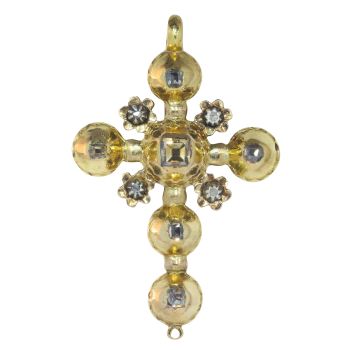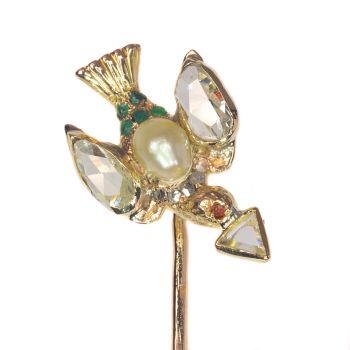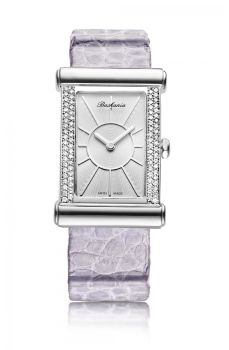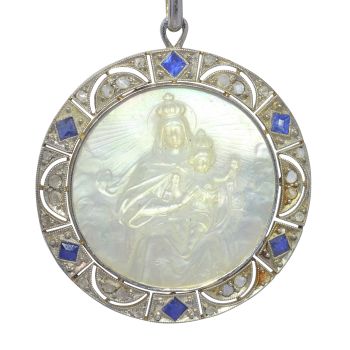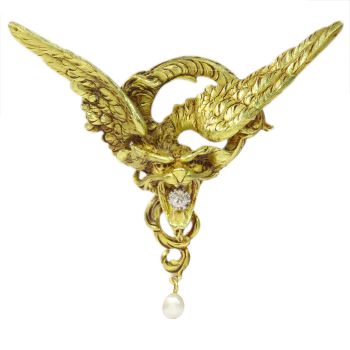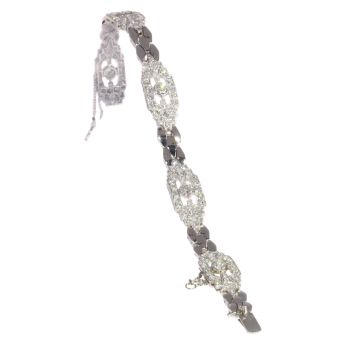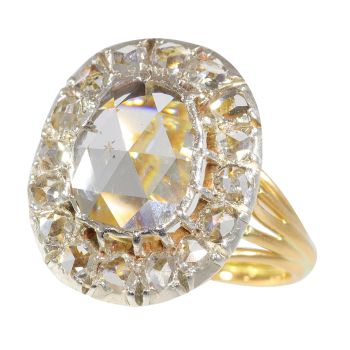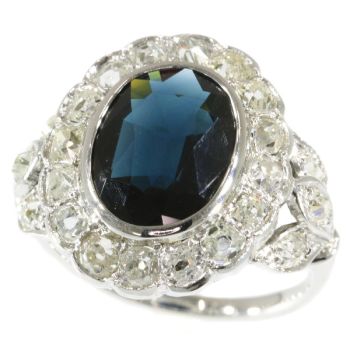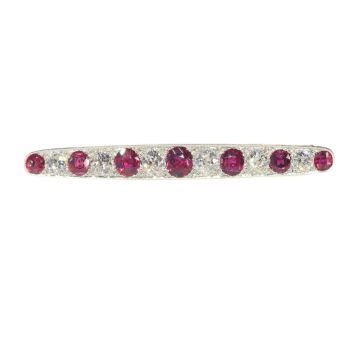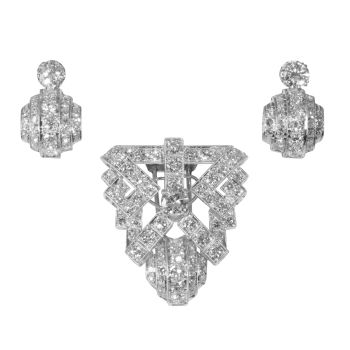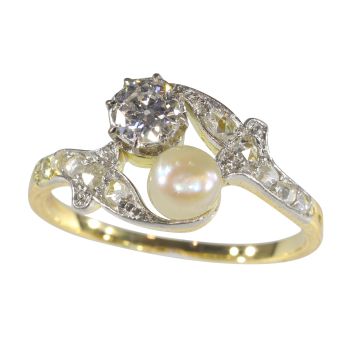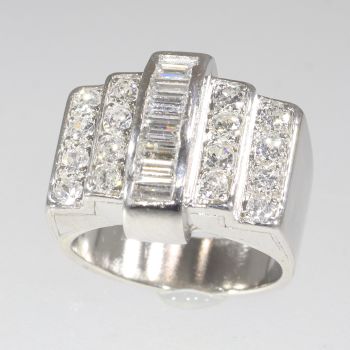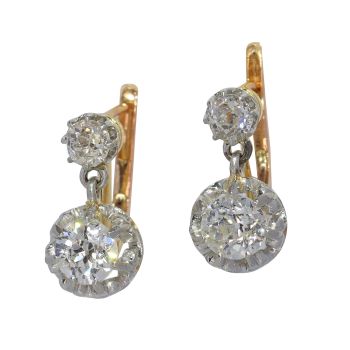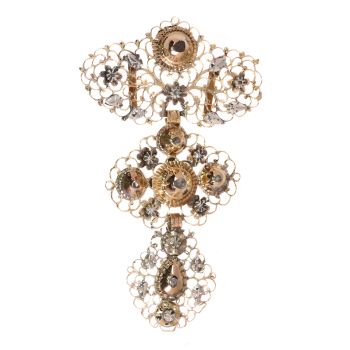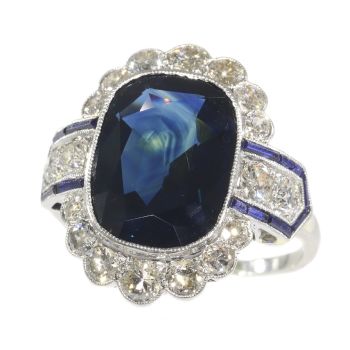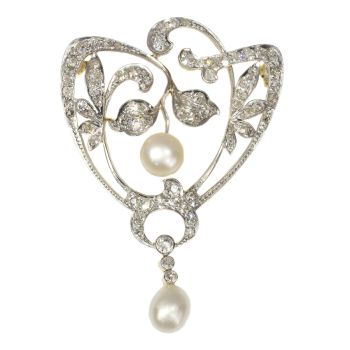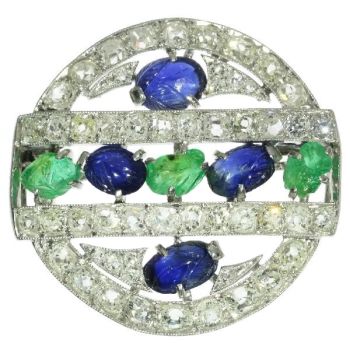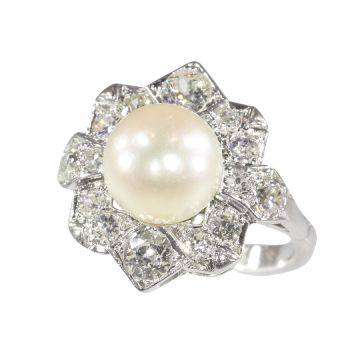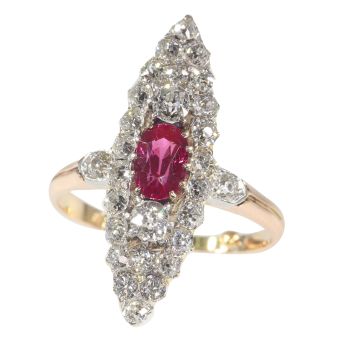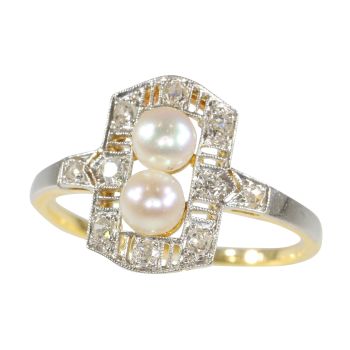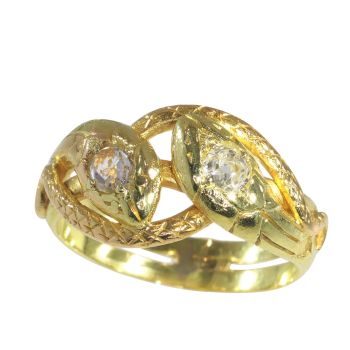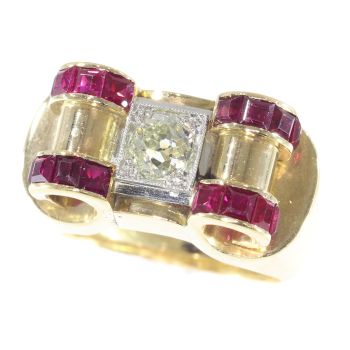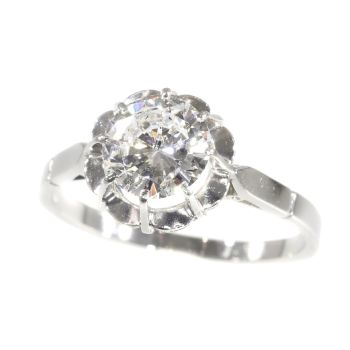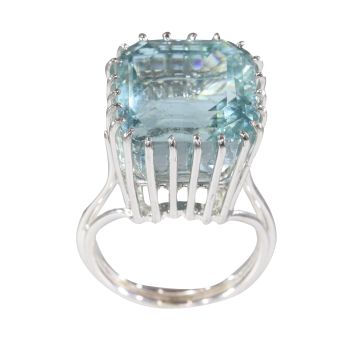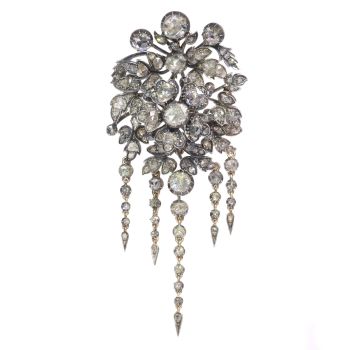Brincos vitorianos antigos com um motivo de concha cravejado de diamantes em lapidação rosa 1870
Artista Desconocido
DiamantePiedra preciosa
€ 2.200
Adin Fine Antique Jewellery
- Sobre la obra de arte
Antique jewelry object group: earrings short hanging
Condition: excellent condition
- (more info on our condition scale)
Country of origin: unknown
Style: Victorian - Victorian decorative arts refers to the style of decorative arts during the Victorian era. The Victorian era is known for its eclectic revival and interpretation of historic styles and the introduction of cross-cultural influences from themiddle east and Asia in furniture, fittings, and Interior decoration. Victorian design is widely viewed as having indulged in a regrettable excess of ornament. The Arts and Crafts movement, the aesthetic movement, Anglo-Japanese style, and Art Nouveaustyle have their beginnings in the late Victorian era.
- See also: Victorianor more info on styles
Style specifics: The Grand Victorian Period - Experts divide the reign of Queen Victoria, also called The Victorian era (1837 - 1901) into three periods of about twenty years each; The Romantic Victorian Period (1837 - 1860), The Grand Victorian Period (1860 - 1880),and the Late or Aesthetic Victorian Period (1880 - 1901).
We consider this to be of the Grand Victorian Period.
This second Victorian period is famous for its ostentatious pieces set with pearls and diamonds (from South Africa). From ca. 1850 wealthy English had reported about jewelry from India and Japan, which heavily inspired the jewelers of this period. Thisperiod also corresponds with the death of Queen Victoria's husband King Albert making mourning jewelry (set with heavy dark stones) the type of jewelry specific for this period.
Period: ca. 1870
- (events & facts of this era, poetry of this era, fashion of this era)
Source of inspiration: Mother Nature
Theme: shell
Material: 14K yellow gold
- (more info on precious metals)
Technique: The rose cuts are set on foil. This is a special technique that was used to bring the lustre of the diamonds to its best quality.
Diamond(s): 18 rose cut diamonds. We do not have the weight of the diamonds which is normal in our trade when it comes to rose cuts.
Birthstones: Diamond is the birthstone (or month stone) for April.
- (more info on birthstones)
Hallmarks: No trace.
- (more info on hallmarks)
Dimensions: height 2,80 cm (1,10 inch)
Weight: 5,80 gram (3,73 dwt)
Reference Nº: 17093-0121
Copyright photography: Adin, fine antique jewelry
yellow gold jewelry, jewelry with rose cut diamonds, latest acquisitions,
antique jewelry, estate jewelry, vintage jewelry or modern jewelry
Jewelry with birthstones (or month stones) for:
January - February - March - April - May - June - July
August - September - October - November or December.
Additional information:
jewelry glossary - wall of fame - visit us in Antwerp - subscribe to our mailinglist.
What is antique jewelry? - What is estate jewelry? - What is vintage jewelry?
- Sobre el artista
Puede suceder que un artista o creador sea desconocido.
Algunas obras no deben determinarse por quién está hecho o por (un grupo de) artesanos. Algunos ejemplos son estatuas de la Antigüedad, muebles, espejos o firmas que no son claras o legibles, pero también algunas obras no están firmadas en absoluto.
También puedes encontrar la siguiente descripción:
•"Atribuido a …." En su opinión, probablemente una obra del artista, al menos en parte.
•“Estudio de….” o “Taller de” En su opinión, una obra ejecutada en el estudio o taller del artista, posiblemente bajo su supervisión
•“Círculo de…” En su opinión, una obra del período del artista que muestra su influencia, estrechamente asociado con el artista pero no necesariamente su alumno.
•"Estilo de …." o “Seguidor de…”. En su opinión, una obra ejecutada al estilo del artista pero no necesariamente por un alumno; puede ser contemporáneo o casi contemporáneo
•"Manera de …." En su opinión una obra al estilo del artista pero de fecha posterior
•"Después …." En su opinión, una copia (de cualquier fecha) de una obra del artista
•“Firmado…”, “Fechado…” o “Inscrito” En su opinión, la obra ha sido firmada/fechada/inscrita por el artista. La adición de un signo de interrogación indica un elemento de duda.
•“Con firma…”, “Con fecha…”, “Con inscripción…” o “Lleva firma/fecha/inscripción” en su opinión la firma/fecha/inscripción ha sido añadida por alguien que no es el artista
¿Está interesado en comprar esta obra de arte?
Artwork details
Related artworks
- 1 - 4 / 12
Artista Desconocido
Enchanting 1870s Vintage Fly Brooch: Victorian Elegance in Gold1870
€ 4.600Adin Fine Antique Jewellery
 curada por
curada porDanny Bree
1 - 4 / 24- 1 - 4 / 24
Artista Desconocido
Anillo retro en platino engastado con diamantes y zafiro1940 - 1950
Precio a consultarLyppens Juweliers
1 - 4 / 24- 1 - 4 / 12

